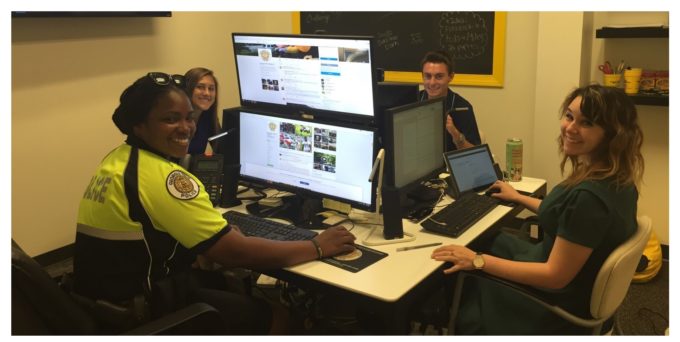How can you be a ConnectedCOP if you're not LinkedIn?
There have been a few stories in the major press recently about gang members increasing use of social media. The most recent just today by the Associated Press: Use of Twitter, Facebook rising among gang members
![]() I posted the article on the Law Enforcement 2.0 LinkedIn group and a couple hours later, it was commented on by Ken Davey, a senior member of the Hong Kong Police. Davey joined the group just a couple weeks ago and has already commented a few times.
I posted the article on the Law Enforcement 2.0 LinkedIn group and a couple hours later, it was commented on by Ken Davey, a senior member of the Hong Kong Police. Davey joined the group just a couple weeks ago and has already commented a few times.
What he pointed out is that it doesn’t matter where in the world, policing is facing the same issues. Regarding gangs he said, “Recruitment of new members, directions on activities, warnings of impending police action, gathering of their own intel, perhaps even looking for weak spots to exploit in authority figures or other gangs, are all potential ways they might and do use social media.”
“This an area that many police forces, though maybe still catching up, ought to feel more secure in using social media than they do for, perhaps, community policing. After all, it is just another way of criminals making use of whatever is available to them out there and, just as we police the streets, we now need to police a cyber-sector.”
My favorite part of his comments:
For example, patrolling chat rooms for sexual predators is nothing new, so while maybe the older, less tech-savvy LEOs might not know how to use the tool itself, their policing skills and experience are still directly relevant to the job. It’s just a case of learning to use the tools.
~Chief Superintendent Ken Davey, Hong Kong Police
“For example, patrolling chat rooms for sexual predators is nothing new, so while maybe the older, less tech-savvy LEOs might not know how to use the tool itself, their policing skills and experience are still directly relevant to the job. It’s just a case of learning to use the tools.”
The time has come
Chief Superintendent Davey is in Hong Kong. And where are you right now? Where else can you exchange ideas on topics that you struggle with every day like this? You don’t have time to always travel to events to do it. Why not get on LinkedIn. It’s incredibly easy to get started. You can join groups right away. The value you get out of groups is equal to what you put in. And even if you’re one of those “less tech-savvy LEOs” that Davey refers to, you can get going on LinkedIn. Run into trouble? Find some old-fashioned piece of technology (like email or a phone) and contact me. I’m at your service.
Police Executives on LinkedIn
Recently I started a few other groups for police executives. The groups are only for command level officers with one subgroup for chiefs only. So, any time you want, you can put a topic out there and know that only chiefs – with decades of experience – will hear it and possibly offer some valuable insight, any hour of the day.
I have chiefs helping me manage them including Chief Molloy in Michigan, Chief Alexander in Florida and Chief Stacey in Nebraska.
We also have subgroups by geography so if you want to link all the police executives in your state, just say the word and I’ll set it up. While the Law Enforcement 2.0 group, and most others are open to just about anybody, none of the executive groups are public. The best way to join is, once you’re on LinkedIn, contact me through there.
LinkedIn just makes sense for LEOs of all levels. It’s inherently a place where professionals get together to share ideas. No “friending”, no “following”, just linking to other people with shared interests and exchanging good information.
If you’re not on LinkedIn, what are you waiting for? And if you are, be sure to join the groups I mention here and search for others. There are many that are law enforcement related.
No reason to object
All the reasons cops think of to avoid social media really don’t apply with LinkedIn. Like the privacy issues you all worry about. You set your profile up so no one can see it unless you’re linked. And you link with other professionals, not citizens or former high-school chums. The facebook issues where a “friend-of-a-friend” can see your stuff without you knowing are just not there. And the benefits are huge. You’ll make global connections and have access to a wealth of information. The power of LinkedIn is when you start to see potential connections to people you want to know but don’t. Participation, as always, is the key.



Hello Lauri … I have to agree with you … way before I started my stint with the Ontario Provincial Police, I’ve found LinkedIn and other social media platforms to be great professional development tools.
The knowledge and best practices exchanged thru LinkedIn and others are key in honing many different aspects of my skills … that helps me do my job better and keeps my bosses happy too!